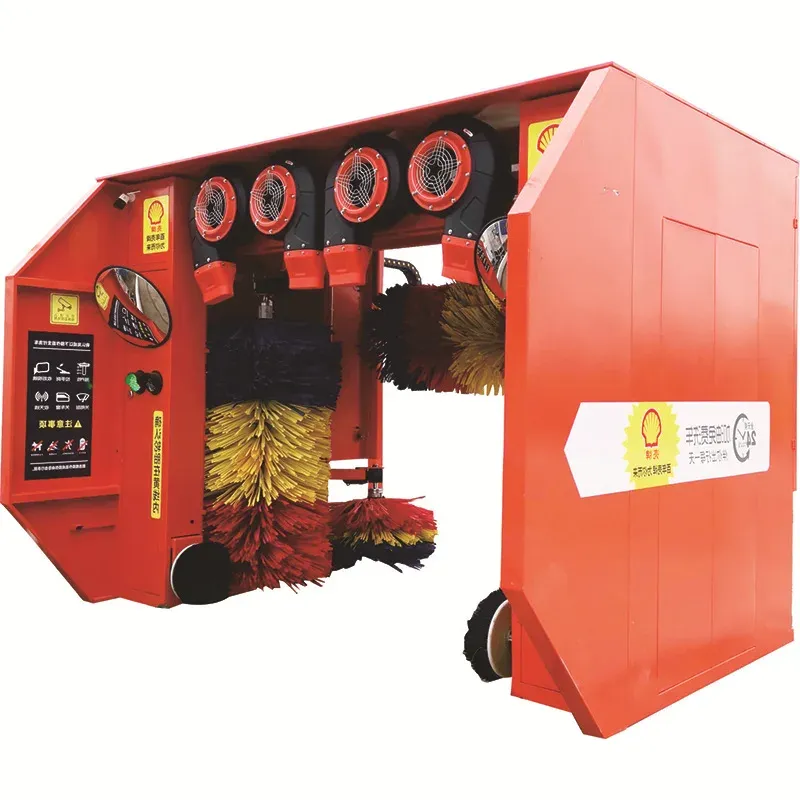Efficient Automated Truck Cleaning Solution for Heavy-Duty Vehicles
The Rise of Automated Truck Wash Systems A Cleaner Future on the Roads
In recent years, the transportation industry has marked a significant transition towards automation, streamlining operations for efficiency and cost-effectiveness. One of the most noteworthy innovations in this domain is the automated truck wash system, essential for maintaining the cleanliness and longevity of commercial vehicles. This cutting-edge technology is not only revolutionizing truck maintenance but also contributing to environmental sustainability.
Automated truck wash systems operate through a series of advanced technologies, integrating sensors, conveyor belts, and specialized cleaning equipment to wash trucks efficiently. These systems feature pre-soaking, scrubbing, rinsing, and drying processes, which work in unison to ensure that every inch of the vehicle, from the tires to the trailer, is meticulously cleaned. Such technology significantly reduces the time it takes to wash a truck, minimizing downtime for drivers and fleet managers.
One of the primary benefits of automated truck washes is the consistency of cleaning they provide. Unlike manual washes, where human error can lead to missed spots or uneven cleaning, automated systems ensure that every vehicle receives the same thorough treatment. This consistency is essential for maintaining a professional image in the transport industry, where a clean truck enhances brand reputation and customer trust.
Furthermore, automated truck wash systems are designed with water efficiency in mind. Traditional wash methods can consume excessive amounts of water, resulting in increased operational costs and environmental impact. However, many automated systems are equipped with advanced water recycling technologies that filter and reuse water, thus minimizing waste. This commitment to sustainability not only conserves precious resources but also helps businesses comply with environmental regulations, which are increasingly stringent in many regions.
automated truck wash system

In addition to water efficiency, these systems utilize eco-friendly cleaning agents. The shift towards biodegradable soaps and environmentally safe detergents aligns with global efforts to reduce the carbon footprint of various industries. As businesses become more environmentally conscious, adopting automated truck wash systems reflects a commitment to sustainability that resonates with consumers and regulatory bodies alike.
Another critical advantage of automated truck wash systems is their ability to handle a high volume of vehicles. With the growing demand for logistics and transportation services, these systems can manage multiple trucks in a fraction of the time it would take to wash them manually. This efficiency is especially beneficial for fleet owners, allowing them to serve their customers better while ensuring their vehicles remain in optimal condition.
Despite their numerous advantages, some may argue that the initial investment in automated truck wash systems can be substantial. However, when evaluating the long-term benefits—including reduced labor costs, water savings, and improved vehicle maintenance—many companies find that these systems pay for themselves over time. Furthermore, with the continuous advancements in technology and the decreasing cost of automation, more fleets are recognizing the feasibility of this solution.
In conclusion, automated truck wash systems are changing the landscape of vehicle maintenance in the transportation industry. They offer a cleaner, more efficient, and sustainable solution for keeping commercial vehicles in pristine condition. As the industry continues to evolve and embrace technological innovations, the future of truck washing looks bright—one wash at a time.




